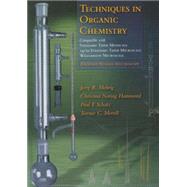| Preface | ix | ||||
| PART 1 BASIC TECHNIQUES | 1 | (150) | |||
|
2 | (14) | |||
|
2 | (3) | |||
|
5 | (1) | |||
|
6 | (2) | |||
|
8 | (1) | |||
|
9 | (2) | |||
|
11 | (3) | |||
|
14 | (2) | |||
|
16 | (7) | |||
|
17 | (1) | |||
|
18 | (2) | |||
|
20 | (2) | |||
|
22 | (1) | |||
|
23 | (4) | |||
|
23 | (3) | |||
|
26 | (1) | |||
|
27 | (5) | |||
|
27 | (2) | |||
|
29 | (3) | |||
|
32 | (8) | |||
|
32 | (2) | |||
|
34 | (6) | |||
|
40 | (8) | |||
|
41 | (1) | |||
|
41 | (6) | |||
|
47 | (1) | |||
|
48 | (8) | |||
|
48 | (2) | |||
|
50 | (1) | |||
|
51 | (1) | |||
|
52 | (4) | |||
|
56 | (22) | |||
|
58 | (1) | |||
|
59 | (2) | |||
|
61 | (3) | |||
|
64 | (1) | |||
|
65 | (2) | |||
|
67 | (5) | |||
|
67 | (2) | |||
|
69 | (1) | |||
|
70 | (2) | |||
|
72 | (2) | |||
|
74 | (2) | |||
|
76 | (2) | |||
|
78 | (15) | |||
|
78 | (3) | |||
|
81 | (1) | |||
|
82 | (1) | |||
|
83 | (1) | |||
|
83 | (5) | |||
|
86 | (2) | |||
|
88 | (1) | |||
|
88 | (4) | |||
|
89 | (1) | |||
|
90 | (2) | |||
|
92 | (1) | |||
|
93 | (11) | |||
|
93 | (3) | |||
|
96 | (2) | |||
|
98 | (3) | |||
|
101 | (1) | |||
|
102 | (1) | |||
|
103 | (1) | |||
|
104 | (29) | |||
|
104 | (2) | |||
|
106 | (3) | |||
|
109 | (9) | |||
|
113 | (1) | |||
|
113 | (3) | |||
|
116 | (2) | |||
|
118 | (4) | |||
|
122 | (1) | |||
|
123 | (6) | |||
|
129 | (4) | |||
|
133 | (3) | |||
|
133 | (2) | |||
|
135 | (1) | |||
|
136 | (4) | |||
|
13.1 | (137) | |||
|
137 | (1) | |||
|
138 | (1) | |||
|
139 | (1) | |||
|
140 | (11) | |||
|
140 | (3) | |||
|
143 | (2) | |||
|
145 | (1) | |||
|
146 | (1) | |||
|
147 | (1) | |||
|
147 | (4) | |||
| PART 2 CHROMATOGRAPHY | 151 | (44) | |||
|
153 | (10) | |||
|
153 | (2) | |||
|
155 | (1) | |||
|
156 | (2) | |||
|
158 | (1) | |||
|
159 | (1) | |||
|
160 | (2) | |||
|
162 | (1) | |||
|
163 | (15) | |||
|
164 | (2) | |||
|
166 | (3) | |||
|
169 | (1) | |||
|
170 | (2) | |||
|
172 | (2) | |||
|
174 | (1) | |||
|
175 | (3) | |||
|
178 | (17) | |||
|
179 | (2) | |||
|
181 | (1) | |||
|
182 | (2) | |||
|
184 | (1) | |||
|
185 | (2) | |||
|
187 | (2) | |||
|
189 | (1) | |||
|
189 | (2) | |||
|
191 | (4) | |||
| PART 3 SPECTROSCOPIC METHODS | 195 | (105) | |||
|
197 | (27) | |||
|
197 | (1) | |||
|
198 | (3) | |||
|
201 | (1) | |||
|
202 | (4) | |||
|
206 | (11) | |||
|
217 | (7) | |||
|
224 | (60) | |||
|
225 | (3) | |||
|
228 | (4) | |||
|
232 | (1) | |||
|
232 | (1) | |||
|
232 | (1) | |||
|
233 | (1) | |||
|
234 | (9) | |||
|
243 | (9) | |||
|
252 | (10) | |||
|
262 | (8) | |||
|
270 | (6) | |||
|
276 | (8) | |||
|
284 | (16) | |||
|
284 | (2) | |||
|
286 | (3) | |||
|
289 | (1) | |||
|
290 | (6) | |||
|
296 | (2) | |||
|
298 | (2) | |||
| Integrated Spectroscopy Problems | 300 | ||||
| Appendix The Literature of Organic Chemistry | 1 | (1) | |||
| Index | 1 |








